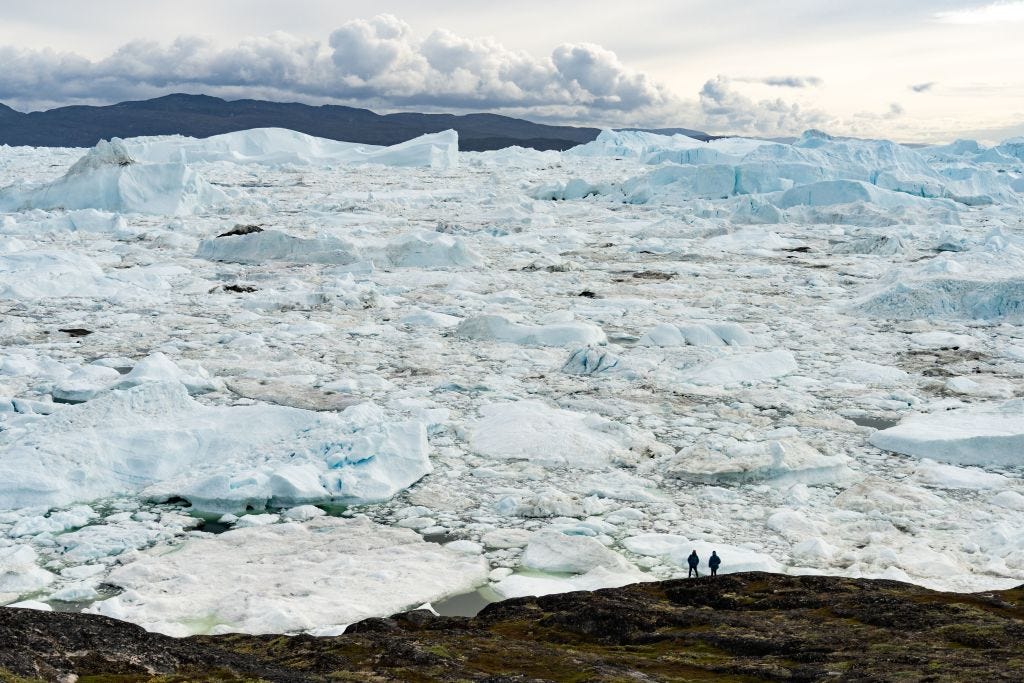Govt flounders while ocean temps soar
Description
TL;DR : Here’s the top six items of climate news for Aotearoa-NZ this week, as selected by Bernard Hickey and The Kākā’s climate correspondent Cathrine Dyer, most of which they discussin the video above.
* According to experts, the rate of ocean surface warming around New Zealand is “outstripping the global average threefold in some areas and twice on average”. They warn that the severity of storms like Cyclone Gabrielle and the ones that recently hit the East Coast are expected to grow even higher in the future as a result.
* At the same time, a new briefing from Public Health Communication Centre Aotearoa (PHCCA) claims the Government’s policy response is incoherent, saying that ‘clean-ups are not enough’! Further, “It is evident that the current Government is failing to make the connection between their climate change policies and increasing negative impacts on communities and the country.”
* Their call for ‘policy coherency’ is echoed by carbon market expert Christina Hood, who suggested recently that key ministers appear to be operating under the misapprehension that emissions growth caused by their policies will be automatically offset by the ETS.
* That same policy incoherency is replicated again in the government’s new ‘Five-point’ climate strategy as experts point to inconsistencies in the policy approach.
* As if to put a pin in the risks to human wellbeing, ‘crazy’ ocean temperatures super-charged the earliest ever recorded category 5 hurricane in the Atlantic Ocean. Hurricane Beryl slammed into Texas this week, turning out lights for two million households, after killing 11 people during its early season rampage across the Caribbean.
* Canadian oil companies, lobby groups and third-party advertisers are scrambling to scrub their websites clean of carbon capture claims likely to fall afoul of new greenwashing rules.
(See more detail and analysis below. Cathrine Dyer’s journalism on climate and the environment is available free to all paying and non-paying subscribers to The Kākā and the public. It is made possible by subscribers signing up to the paid tier to ensure this sort of public interest journalism is fully available in public to read, listen to and share. Cathrine wrote the wrap. Bernard edited it. Lynn copy-edited and illustrated it.)
1. NZ waters warming more than global average
New data sets released by Stats NZ this week show sea surface temperatures around the country in 2022 and 2023 were the hottest ever recorded. Areas to the west of the North Island were bathed in heatwave conditions for nearly 90% of the year.
Dr Matt Pinkerton, Principal Scientist – Marine Ecology & Remote Sensing at NIWA points out just how dramatic and localised the increase has been:
"Things are getting hotter because of climate change – we knew that already – but the accelerating pace of warming of the oceans around New Zealand is surprising. The rate of ocean surface warming round New Zealand is now outstripping the global average threefold in some areas and twice on average. This disrupts the narrative that New Zealand is well placed to avoid the worst that climate change will bring. More warming brings more marine heatwaves and the increase in these abnormally hot events since 2010 is dramatic.”
Acceleration in the rate of ocean warming has consequences that extend beyond the marine environment itself, with the ocean being a dominant factor in the weather experienced in Aotearoa. Dr. Georgia Grant, climate scientist at GNS Science warns of increasing storm intensity.
“It’s important for New Zealanders to be aware that, even if global warming is kept to 2°C above pre-industrial temperatures in line with the Paris target (which the world is not on track to meet), we should expect higher ocean temperatures here. As an island nation, the ocean dictates much of our weather, and increasing ocean temperatures are one of the factors as to why storms like Cyclone Gabrielle are expected to increase in severity under climate warming."
Aotearoa’s ongoing vulnerability to climate-amplified storms has already been brought home to communities on the East Coast , forced to evacuate once again last month as widespread flooding, slips, power outages and 6-metre swells hit the region.
2. The Govt’s incoherent climate approach
Yet government policy is failing to engage with the recurring and amplifying nature of the risks being faced. A new briefing from Public Health Communication Centre Aotearoa (PHCCA), an independent organisation hosted by the Department of Public Health at the University of Otago takes aim at the government’s ‘incoherent response’ to climate change, saying that ‘clean-ups are not enough’!
“It is evident that the current Government is failing to make the connection between their climate change policies and increasing negative impacts on communities and the country. The Government is promoting more mining for fossil fuels, weakening existing protection for wetlands (key to effective flood mitigation and carbon sequestration), focusing on large-scale roading projects while reducing spending on public transport, and continuing to delay action on reducing agricultural emissions.
In the wake of damage to homes in East Coast communities, it must also be remembered that the Government’s Fast-Track Approvals Bill proposes to reduce the rigour with which major housing (among other) developments are considered and approved.”
The briefing points to the resulting impacts on the health and well-being of citizens (for example from polluted drinking water and displacement) as well as the economic consequences from infrastructure damage and interrupted supply chains. Importantly, they note that the impacts are not experienced equally by people, with rural, Māori and low-income populations disproportionately affected. This was reflected in Wairoa Mayor Craig Little’s response to the storm,
“I don’t know how we’re going to get through this one, to be honest. We are a poor community, and this is just another big kick”.
The PHCCA are calling for more policy coherence, an approach being actively promoted by the OECD. Coherency in policy approaches suggests that consistent policies should be developed across government to ensure they don’t undermine one another and instead produce co-benefits from the alignment of mitigation and adaptation measures.
3. Ministers’ false faith in ETS
In another example, carbon market expert Christina Hood recently pointed out in a post on Linkedin that government ministers appear to be misapprehending the way that the ETS operates, putting too much faith in its ability to offset the increased emissions that are resulting from their own policies being introduced across various sectors.
Like the PHCCA, Hood is also calling for greater policy coherence in an op-ed article for The Post, suggesting that ALL relevant ministers need to be given responsibility and accountability for emissions.
“Understanding that the ETS will not automatically constrain net emissions to meet the 2026-30 budget is one key reason that ministerial accountability matters. Failure to implement the policies agreed in the Emissions Reduction Plan could lead to the target being missed. Other decisions unrelated to the Emissions Reduction Plan that increase emissions could also lead to the target being missed [...].
A robust accountability process would mean ministers assess the emissions impact of all major decisions, liaise with the Climate Change Minister to understand the degree to which the ETS is likely to compensate or not, and make Cabinet aware of any resulting emissions shortfall and its cost. Individual ministers could even be given responsibility to fill any holes that they have created.
Responsibility for the emissions budget cannot sit solely with the Climate Change Minister. The Emissions Reduction Plan is the place to set climate change KPIs for all key ministers.” Source: <a target="_blank" href="https://www.thepost.co.nz/nz-news/350324959/ministers-should-be-
























